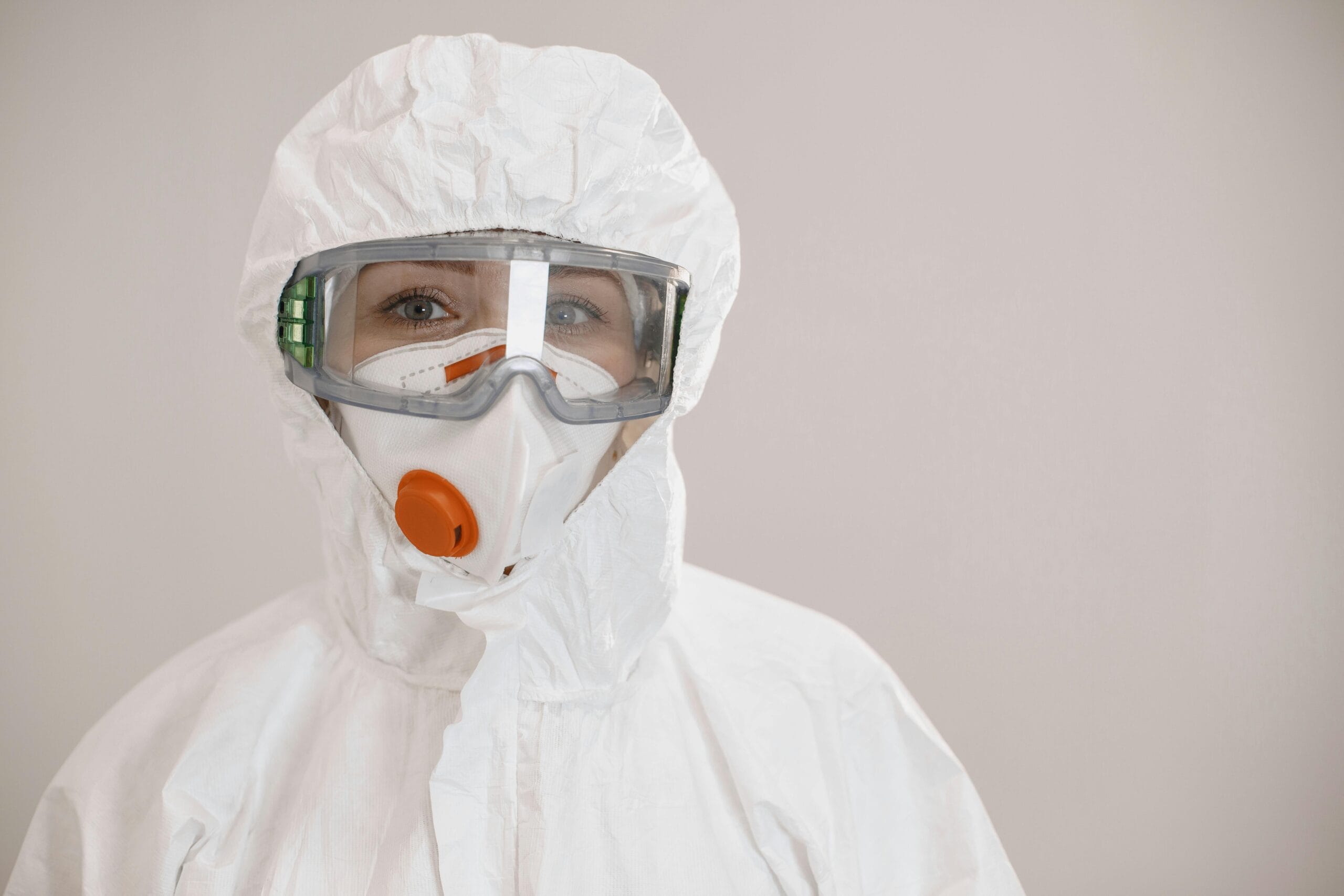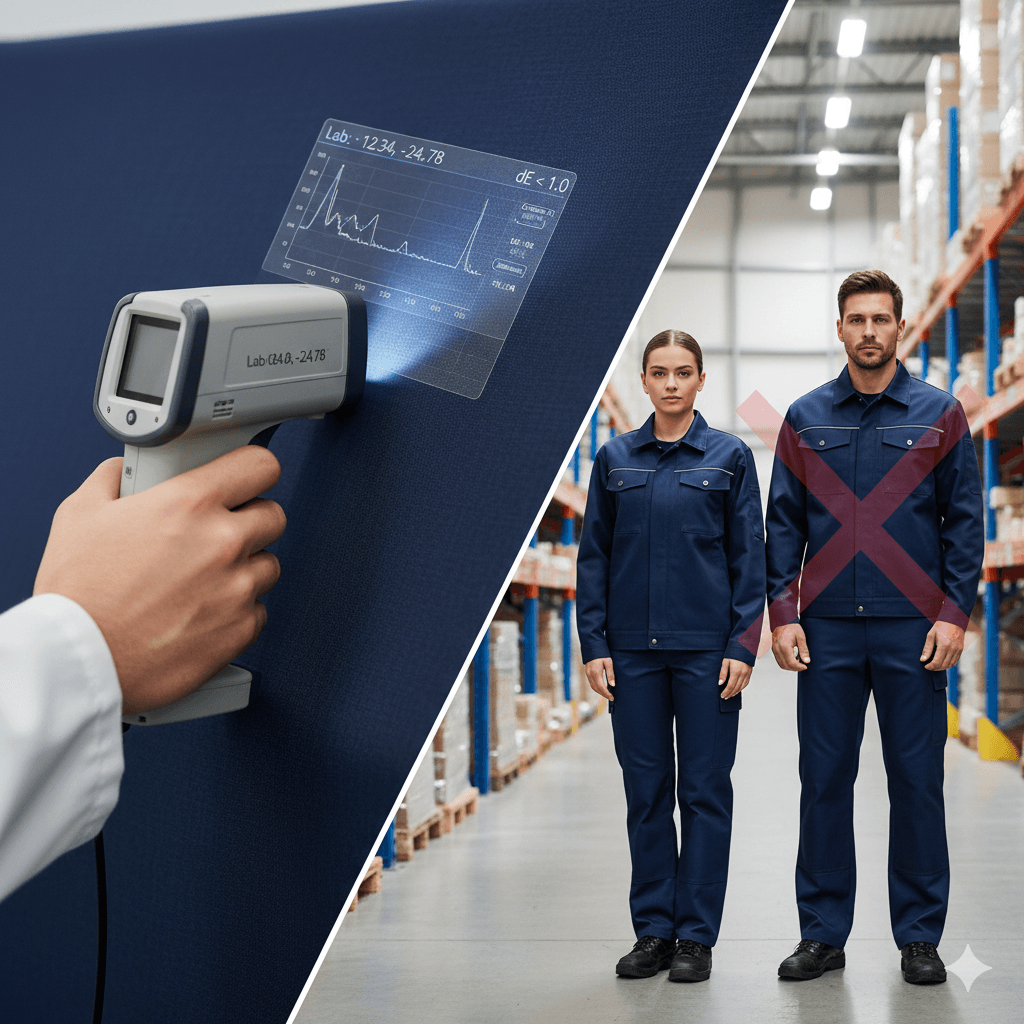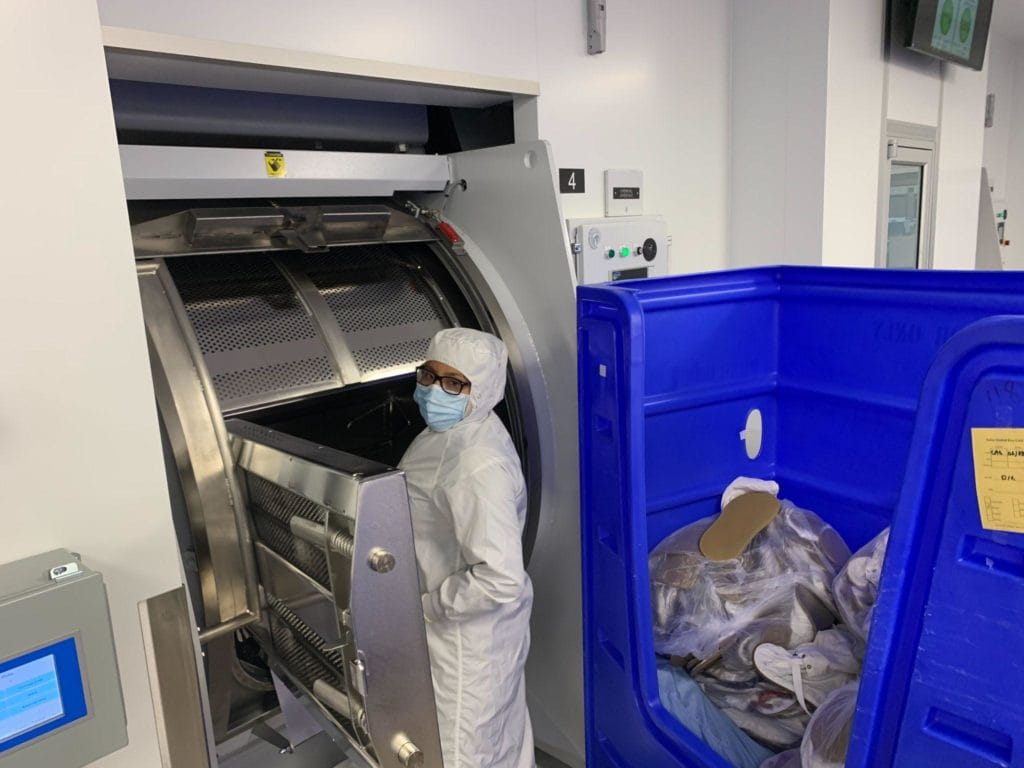
Step into a pharmaceutical plant in Cairo or a hospital ward in Buenos Aires, and you’ll notice one thing immediately: everyone is in uniform. From lab coats to disposable caps and sterile gloves, workwear in healthcare and pharma isn’t just clothing—it’s the frontline defense against cross-contamination, infection, and compliance failures.
In this industry, a small hygiene slip can cause massive consequences: patient infections, contaminated medicines, failed audits, and even international recalls. That’s why healthcare and pharma facilities invest heavily in certified, antimicrobial, and easy-to-clean workwear. For distributors and traders, this represents a high-demand, repeat-order market that’s only getting stronger post-pandemic.
Healthcare and pharma workwear requires antimicrobial protection, disposables (caps, masks, gloves), and compliance with EN 13795, FDA, and WHO standards. Essential items include lab coats, scrubs, caps, gloves, and goggles. Demand is rising in emerging regions like Africa and South America due to post-pandemic hygiene requirements and stricter international audits.
Why Healthcare & Pharma Workwear Matters
-
Strict Hygiene Rules
- Facilities must meet FDA, WHO, or EU regulations.
- Workwear must block bacteria, dust, and particles from contaminating drugs or patients.
-
High Risk of Cross-Infection
- Hospitals face multi-drug-resistant bacteria.
- Pharma plants must avoid cross-contamination between production lines.
-
Specialized Work Environments
- Cleanrooms demand lint-free, static-free fabrics.
- Hospital staff need breathable, antimicrobial uniforms for long shifts.
-
Pandemic-Driven Demand
- COVID-19 created lasting demand for disposable and antimicrobial gear.
- Many hospitals now require antimicrobial lab coats as standard.
-
Professional Image
- Patients trust professionals who look clean and uniformed.
- Pharma auditors judge compliance partly by workwear hygiene.
Real-World Cases
Case #1 – Egyptian Pharmaceutical Plant
A factory in Cairo producing antibiotics was flagged during an EU audit: workers wore cotton coats without EN 13795 certification. This nearly cost them an export license.
✅ Fix: They switched to EN 13795-compliant antimicrobial lab coats and disposable caps. Compliance was restored, and exports resumed.
Case #2 – Argentinian Hospital
A hospital in Buenos Aires struggled with hospital-acquired infections. Staff uniforms were washed at home, spreading bacteria.
✅ Solution: Introduced antimicrobial scrubs and centralized laundry service. Infection rates fell by 25% within a year.
Case #3 – Nigerian Clinic
Nurses wore low-cost, non-standard gloves that tore easily. This caused needle-stick injuries and blood contamination risks.
✅ Lesson: Switched to EN ISO 374-certified nitrile gloves. Injury rates dropped, and staff confidence increased.
Essential Workwear Products
| Item | Function | Recommended Material |
|---|---|---|
| Lab Coats / Scrubs | Antimicrobial, hygienic, professional image | Polyester-cotton, rPET blends |
| Disposable Caps & Masks | Prevent hair/particle contamination | Non-woven polypropylene |
| Nitrile/Neoprene Gloves | Chemical & biological protection | EN ISO 374-certified nitrile |
| Safety Goggles | Eye protection against splashes | Polycarbonate, anti-fog coating |
| Cleanroom Coveralls | Sterile environments, lint-free | Non-woven, anti-static fabrics |
| Shoe Covers | Prevent floor contamination | PE-coated or non-woven material |
International Standards
| Standard | Purpose | Application |
|---|---|---|
| EN 13795 | Performance for surgical & medical clothing | Pharma, hospitals |
| FDA 21 CFR | US hygiene & safety compliance | Pharma exports to US |
| WHO Guidelines | Infection prevention standards | Global healthcare use |
| EN ISO 374 | Chemical-resistant gloves | Pharma + lab use |
| ISO 14644 | Cleanroom contamination standards | Pharma manufacturing |
👉 Compliance with EN 13795 + FDA + WHO is non-negotiable for international exports.
Market Opportunities
- Africa: Growing pharmaceutical manufacturing and international hospital projects create demand for certified gear.
- Middle East: Medical cities (Saudi Arabia, UAE) require EN/FDA-approved clothing.
- South America: Hospitals modernizing post-pandemic, shifting from cotton to antimicrobial fabrics.
- Central Asia: New pharmaceutical plants being built with foreign investment, demanding export-compliant PPE.
Procurement Pitfalls
❌ Mistake 1: Using regular cotton → absorbs bacteria, fails hygiene tests.
❌ Mistake 2: Buying cheap gloves → high tear rate, non-compliance.
❌ Mistake 3: Ignoring certification → shipments rejected at customs or by auditors.
❌ Mistake 4: Re-using disposable caps/masks → contamination risk.
❌ Mistake 5: Mixing cleanroom & general-use uniforms → audit failures.
Fabric & Workwear Options: Comparison Table
| Type | Pros | Cons | Best Use Case |
|---|---|---|---|
| Traditional Cotton | Cheap, breathable, easy to source | Absorbs bacteria, fails hygiene audits, shrinks after washes | Local clinics with low compliance requirements |
| Antimicrobial Fabric | Long-lasting protection, reusable, professional look | Higher upfront cost, requires industrial laundry | Hospitals, pharma plants, export-compliant sites |
| Disposable Non-Woven | 100% hygiene (single-use), low contamination risk | Continuous replacement cost, waste management issue | Cleanrooms, surgical operations, high-risk wards |
👉 Key Insight:
- Cotton is being phased out in most international projects.
- Antimicrobial fabrics are cost-effective long-term for hospitals and pharma.
- Disposables are mandatory for cleanrooms and surgical environments despite higher ongoing costs.
ROI & Cost Savings
| Scenario | Without Proper Workwear | With Certified Workwear | Savings |
|---|---|---|---|
| EU Audit Failure | $500,000 export loss | $30 per lab coat | $499,970 saved |
| Hospital Infection Cases | $200,000 treatment costs | $15 per antimicrobial scrub | $199,985 saved |
| Glove Failures (injuries/claims) | $50,000 annual claims | $0.10 per nitrile glove | $49,900 saved |
| Contamination Recall (pharma) | $1M+ recall cost | $2,500 PPE upgrade/year | Nearly $1M saved |
Buyer’s Toolkit
Checklist
- [ ] EN 13795-certified lab coats/scrubs
- [ ] Disposable caps and masks (non-woven, single-use)
- [ ] EN ISO 374 nitrile gloves
- [ ] Antimicrobial fabrics for reusable garments
- [ ] Centralized laundry plan for hospitals
- [ ] Clear labeling for cleanroom vs general use
FAQ
Q1: Can we use regular cotton lab coats?
- No. They absorb bacteria and fail EN 13795 compliance.
Q2: What’s the difference between antimicrobial and disposable uniforms?
- Antimicrobial uniforms reduce bacteria growth, while disposables prevent cross-use contamination. Many facilities use both.
Q3: How often should scrubs be replaced?
- Every 6–12 months, or earlier if worn out. Disposable gear is replaced daily.
Q4: Do all gloves need certification?
- Yes. EN ISO 374 ensures protection against chemicals and pathogens.
Conclusion
In healthcare and pharma, hygiene is life or death. Certified workwear—antimicrobial coats, gloves, caps, and goggles—protects workers, patients, and medicines.
For traders, this is a fast-growing, high-value market. With hospitals modernizing and pharmaceutical exports rising, the demand for certified, hygienic, and comfortable workwear is only set to increase.
📩 For certified healthcare & pharma workwear inquiries:
Email: [email protected]
🌐 www.workwearsolutions.net
Zion Zhang
Recent Posts
 Color Consistency: The Delta-E Standard and the End of the “Clown Suit” Effect2026年2月4日In the corporate world, a uniform is a brand’s […]
Color Consistency: The Delta-E Standard and the End of the “Clown Suit” Effect2026年2月4日In the corporate world, a uniform is a brand’s […] Why Zippers Fail (and How We Prevent It): The Engineering of Closure Reliability2026年2月4日In the hierarchy of industrial garment components, the […]
Why Zippers Fail (and How We Prevent It): The Engineering of Closure Reliability2026年2月4日In the hierarchy of industrial garment components, the […] The Anatomy of a Seam: Engineering Durability at the Needle Point2026年2月4日In the world of industrial workwear, the fabric gets all […]
The Anatomy of a Seam: Engineering Durability at the Needle Point2026年2月4日In the world of industrial workwear, the fabric gets all […] Future Lab PPE Trends: The Convergence of Lightweight Protection & Sustainability2026年1月28日In the sterile corridors of pharmaceutical R&D, biotech […]
Future Lab PPE Trends: The Convergence of Lightweight Protection & Sustainability2026年1月28日In the sterile corridors of pharmaceutical R&D, biotech […] Chemical Protection Classes A/B/C: The Definitive Guide to Risk-Based PPE Selection2026年1月28日In the hazardous materials (HazMat) industry, […]
Chemical Protection Classes A/B/C: The Definitive Guide to Risk-Based PPE Selection2026年1月28日In the hazardous materials (HazMat) industry, […] Freezer Gloves & Boots Trends: The Intersection of Thermal Physics and Grip Technology2026年1月28日In the unforgiving environment of a -30°C cold storage […]
Freezer Gloves & Boots Trends: The Intersection of Thermal Physics and Grip Technology2026年1月28日In the unforgiving environment of a -30°C cold storage […]
CONTACT US
- Feel free to contact us any time. We will get back to you as soon as we can!
- +86-17303331701
